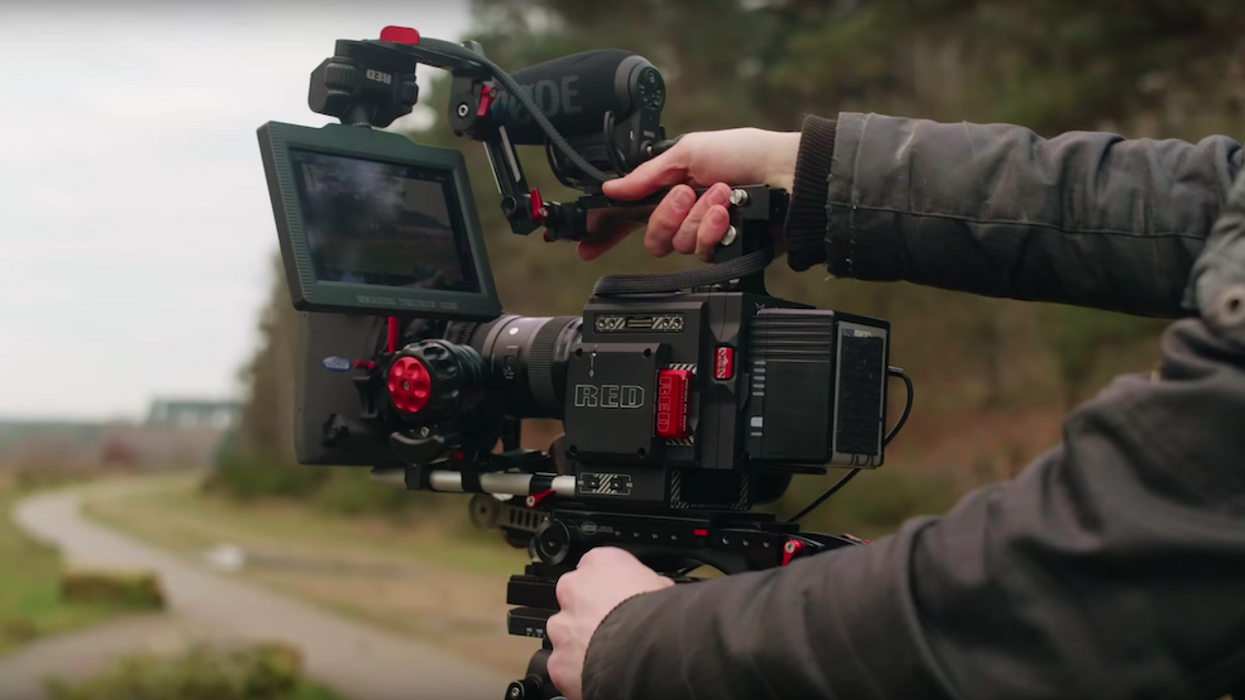5 Bad Habits You Should Break If You Want to Get Better at Filmmaking
Successful filmmaking is all about forming good habits, so here are some bad ones you should avoid.

New to filmmaking? Good for you! This is going to be such an exciting ride full of thrills, chills, and a whole heap of mistakes.
Yeah, mistakes are inevitable in filmmaking, which isn't actually a bad thing if you are wise enough to learn from them. Because what happens when you don't learn from your past mistakes? You're doomed to repeat them. And what do we call repeated mistakes that slop together and congeal over time? Bad habits.
To give you an idea of what kinds of bad habits you should be on the lookout for, check out this video by Jordy Vandeputt of Cinecom, in which he goes over a handful of filmmaking mistakes that should be avoided at all costs.
Not Paying Attention to Your Camera Height and Angle
Camera height and angle are important. You can turn your powerful Übermensch character into a helpless loser by simply positioning your camera a little too high and angling down.
But I get it...you're new to filmmaking and you're just excited to be getting a shot. We've all been there. However, understand that everything within the frame (the mise-en-scene) tells a story, from the lighting to the focal length to the blocking to the, yes, camera angle. Make sure that your images are saying exactly what you want them to say.
Hitting Record Before Checking Your Background
In college, the biggest mistake I saw filmmakers making, including myself, (other than making films that barely had a plot) was not paying attention to their backgrounds. We'd shoot against overexposed white walls. We'd have giant, distracting logos dominating the frame. We'd have pokey things like branches and poles and powerlines sticking out of our subjects' heads and (gawd...) crotches.
Not cute. Pay attention to your backgrounds and be intentional when you choose the right one for your shot. (Pro Tip: The "right" background isn't the first place that is open and quiet enough to shoot in.)
Blasting Your Subject in the Face with the Sun
We could talk all day long about the myriad lighting mistakes I and other filmmakers have made when they first started out, but let's focus on one thing in particular: light positioning. Many times, a new filmmaker won't take into account a light source's position in relation to the subject, so they film their subjects while the sun burns holes into their retinas.
Instead, try positioning the sun on the sides or in back of your subject. This will give you more depth, contrast, and softer shadows, and will help you avoid hot spots, as well as charred holes where your actor's eyeballs used to be.
Shooting From a Comfortable But Locked Position
I know...you've been on your feet all damn day and you still have a bunch of shots left before you can wrap. You're thinking, "Imma sit my ass down to get this low-angle shot." Yeah, that seems like a good idea, but it probably isn't. Why?
Because it's a really good idea to be able to move and adjust the camera's position on the fly. This may not be as important if you know 100% your shot is locked off, but if you're shooting a documentary, going handheld, or will be tracking your subject's movements, get yourself into a position that'll allow you to move freely with the camera, otherwise you'll lose tons of great shots.
Mixing Shooting Styles Willy Nilly
I'm starting to realize that a lot of these mistakes relate to fatigue...or laziness. Right? "But wait...what does mixing shooting styles have to do with getting tired on set...and what's so bad about mixing shooting styles, anyway?"
Well, first of all, there's nothing wrong with changing up your shooting styles—going from handheld to running around with a gimbal to locking your camera off on your tripod—it's all good...when it's intentional. It starts to go sour when you mix it up for no reason, or when you shoot in one style for the majority of your project and then switch it up to something drastically different for the rest of it.
And why would someone do that? Because they're tired or are running out of time! I did this all the time back in the day. I'd have, say, a day to shoot something, and my crew and I would be doing okay, taking our time and getting every shot perfect, until the last two hours. That's when I'd start shooting "Fuck It Handheld" just to get the shots we needed, which pretty much made those shots, as well as the sequences they belonged to, total garbage.
What are some mistakes you've made as a new filmmaker? Let us know down in the comments.
Source: Cinecom













